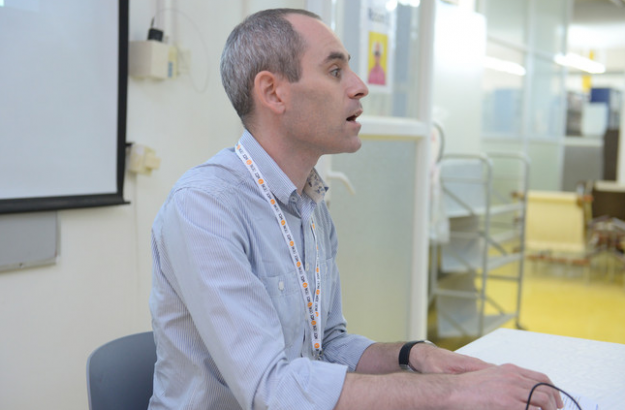On 2 July 2019 the Royal United Services Institute (RUSI) in collaboration with the Britain Israel Communications and Research Centre (BICOM) organised a one-day conference to explore UK policy options in the Middle East after Brexit. Bringing together a select audience of academics, policy experts, think tankers, journalists and government officials, the conference divided the topic into three themes: current policy, the UK’s role in the region and future challenges in the Middle East.
Speakers included Baroness Catherine Ashton, former High Representative of the Union for Foreign Affairs and Security Policy; Rt. Hon. Alistair Burt MP, former Middle East Minister; Sir Mark Lyall Grant, former UK National Security Advisor; Professor Michael Clarke, former RUSI Director-General; Dr Emman al-Badawy, Institute for Global Change; Dr Toby Greene, Queen Mary University; Dr David Roberts, King’s College London; Jane Kinninmont, Head of Programming, The Elders; and Dona Haj, DCMS UK-Israel Tech Hub.
From the UK, the region’s conflicts seem distant. In Israel, where I have lived for the last 13 years, I see how the tensions impact daily life. I live in Modi’in, a town in central Israel half way between Jerusalem and Tel Aviv. A mile from my apartment is a hill where the Iron Dome anti-missile defence system is occasionally deployed. The Iron Dome showed up a week ago. Whilst I cannot say there is a direct link between the tensions in the Gulf and the deployment, I can imagine they would have factored into the IDF’s calculation that there was a heightened risk of missile fire targeting the centre of Israel. My main message, however, is that it is also very important for people in the UK to understand how tensions in the Middle East affect the UK and why the UK must stay engaged in the region.
The BICOM paper Britain’s Middle East Strategy after Brexit highlighted the changes shaping the context of foreign policy today. Brexit, of course; the trend toward retrenchment in the US; increasing multipolarity. But we also looked at the long-term trends in the region in light of British economic and security interests and we concluded that the relevance of the Middle East to the UK is not declining; if anything it’s increasing.
Economy
Firstly, economic interests are increasing. British oil and gas import dependency is projected to rise from 38 per cent in 2018 to 69 per cent in 2035. Today a third of UK gas imports are liquid nitrified gas from Qatar. Whilst this is another good reason to reduce dependency on fossil fuels, this is not going to happen overnight.
At the same time, the UK exports more goods and services to the Arab world than to India and China combined. And the region is likely to grow as a source of inward investment into the UK and as an investment opportunity for the UK as economies diversify, especially Saudi Arabia. And the relative importance of this trade and investment increases in the context of Brexit, of course.
Instability
But as the significance of the region for the UK economy grows, the drivers of instability in the region, and the security threats potentially emanating from the region are not going away; in fact they are multiplying.
The Middle East population is expected to grow from 570 million today to 840 million by 2050. Europe’s population will decline over the same period. Today, half the region’s population is under 24, with very high youth unemployment. But as the region’s populations are soaring they are also ageing, so states will face challenges not only of a huge youth population but an increasingly large elderly population. The burden on the states will grow, as will the burden on natural resources, especially water.
As their populations grow, the oil rich states must transform their socio-economic model if they are to cope. We see this particularly in Saudi Arabia. States need to create employment, cut subsidies, and introduce taxation. And that is made harder because the Arab world currently lags behind on many development measures. Female participation in the workforce, for example, typically ranges between 10 and 30 per cent. This will require social liberalisation, and is likely to increase public demands for more responsive governments. All this has the potential to undermine existing social and political orders.
At the same time, we see increasing religious and cultural diversity, which is diluting traditional sources of legitimacy and authority. As we have seen in the West, increase use of social media has accelerated social fragmentation. We have seen how powerful social media can be in the hands of extremists. Today 63 per cent of Arab youth obtain news from social media, 51 per cent from TV, only 18 per cent from newspapers.
In short, drivers which helped bring about the so-called Arab Spring, with all its consequences for Europe (including Britain) in terms of Islamist extremist terrorism and waves of migration are not going away; if anything they are multiplying.
And if all that was not enough, we face the prospect of a nuclear arms race in the region. Even under the terms of the JCPOA nuclear deal, as of 2031 there will be no limits on either the quantity of enriched uranium Iran can stockpile, or the level they can enrich to. And we know from the secret Iranian nuclear archive recovered by Israeli intelligence last year that Iran has a completed design for a nuclear warhead. Saudi Arabia has said openly that whatever capability Iran has, they will match it.
All of these factors are long-term drivers of instability but some of them can also be viewed as opportunities. Growing populations can fuel economic growth if adequate economic and employment opportunities can be created. The urgent need for diversification creates economic opportunities for the UK.
Given the scale of these challenges and opportunities, the UK should continue to view active engagement in the region as a vital national interest. That clearly requires a financial commitment to all the arms of UK foreign policy: diplomacy, development, and military capability. But it also requires something else: which is a commitment on the part of political leaders to make the case domestically for a long-term commitment to Britain’s global role, and reaffirmation of what that role is.
Resisting Populism
What we see in the UK is the radical Left and radical Right challenging the post-war consensus on British foreign policy and Britain’s role in the world. The radical Left views the West as the greatest source of injustice in the world and instinctively aligns with any actor challenging the US and its allies, including radical Islamists and Iran. The radical Right increasingly defines Western identity not in terms of human rights or liberal values, which should be actively promoted, but rather in terms of what is often referred to as ‘Judeo Christian civilisation’, defined in opposition to non-white cultures and, especially, Islam. Both forms of populism, Right and Left, tend to be sceptical about investing in foreign policy and about all foreign interventions.
Meanwhile, whilst these new forms of political contestation have undermined the former consensus about the national interest, new forms of political communication – social media obviously – has changed the very nature of foreign policy decision-making. Political leaders face greater pressure to react to events in real time, and respond in ways that satisfy the most vocal elements of their own core constituency, rather than think long-term about the interests of the state as a whole.
Politicians that care about long-term interests of the country need to resist these kinds of pressures to polarise issues on questions of foreign policy; and above all resist the temptation to try and cut Britain off from these global challenges and responsibilities.
Back to that Iron Dome battery on the hill by my apartment in Modi’in. The problem with Iron Dome is that it can tempt policy makers to think they don’t have to engage actively to shape the future of the region, but can just shelter behind a shield. I think that’s a mistake for Israeli policy makers. There is a parallel temptation for British policy makers: to believe that they can cut the UK off from the risks of meeting global challenges. The Middle East’s challenges will continue to impact directly on the UK, and for that reason the UK needs to continue investing in tools that can help influence the future of the region.
The panel discussions can be watched below.






































